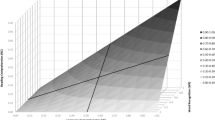Abstract
The main objective of this study is to analyze the effect of inclusive language on the cognitive processing of reading comprehension (in terms of consolidation and retrieval of cognitive material during text reading). The memory trace has been operationalized as the consolidation of information in the long-term memory (after being processed in the working memory) to be able to be retrieved later. An experimental design was used to analyze the response times and the number of errors in the retrieval of this memory trace on different experimental conditions for its consolidation (inclusive language conditions included). The results show that the inclusive language conditions increase the number of errors compared to the language condition written in the so-called “neutral format” (grammatically correct). The data is in line with previous literature that shows that—in order to answer questions after reading a text—an efficient memory trace elaborated in long-term memory is required. In this sense, the effect produced by the inclusive language implies an inefficient consolidation and, therefore, an ineffective retrieval of the information consolidated during reading comprehension (in terms of number of errors).


Similar content being viewed by others
Data availability
The datasets generated during and/or analyzed during the current study are available from the corresponding author on reasonable request.
Change history
20 January 2024
The original article has been corrected. The given and family names of the first author Jose Luis Vilchez Tornero were updated in the article XML.
References
Anderson, M. C., Bunce, J. G., & Barbas, H. (2016). Prefrontal-hippocampal pathways underlying inhibitory control over memory. Neurobiology of Learning and Memory, 134, 145–161. https://doi.org/10.1016/j.nlm.2015.11.008
Ardila, A., Bernal, B., & Rosselli, M. (2016). How localized are language brain areas? A review of Brodmann areas involvement in oral language. Archives of Clinical Neuropsychology, 31, 112–122. https://doi.org/10.1093/arclin/acv081
Atkinson, R. C., & Shiffrin, R. M. (1968). Human memory: A proposed system and its control processes. In K. W. Spence (Ed.), The psychology of learning and motivation: Advances in research and theory (pp. 89–195). Academic Press.
Baddeley, A. (2003). Working memory and language: An overview. Journal of Communication Disorders, 36(3), 189–208. https://doi.org/10.1016/S0021-9924(03)00019-4
Baddeley, A., Gathercole, S., & Papagno, C. (1998). The phonological loop as a language learning device. Psychological Review, 105, 158–173. https://doi.org/10.1037/0033-295X.105.1.158
Baddeley, A., Thomson, N., & Buchanan, M. (1975). Word length and the structure of short-term memory. Journal of Verbal Learning and Verbal Behavior, 14(6), 575–589. https://doi.org/10.1016/S0022-5371(75)80045-4
Baddeley, A. D., & Hitch, G. (1974). Working memory. In G. H. Bower (Ed.), The psychology of learning and motivation: Advances in research and theory (Vol. 8, pp. 47–89). Academic Press.
Bartlett, F. (1932). Remembering: A study in experimental and social psychology. Cambridge University Press.
Bolívar, A. (2019). Una introducción al análisis crítico del 'lenguaje inclusivo'. Literatura y lingüística, 40, 355–375. https://doi.org/10.29344/0717621x.40.2071
Cohen, L., Manion, L., & Morrison, K. (2018). Research methods in education. Routledge.
Ebbinghaus, H. (1913). Memory: Contribution to experimental psychology (H. Ruger y C. Bussenius, Trads). Columbia University. (Original work published in 1885).
Editorial. (2020). ¿Ella, Él o Elle? ¿Cómo reconocerme en el lenguaje si soy de género fluido? [She, He or They? How to recognize myself in the language if I am gender fluid?]. Shock. Retrieved from https://www.shock.co/orgullo-lgbtiq/ella-el-o-elle-como-reconocerme-en-el-lenguaje-si-soy-de-genero-fluido
Editorial. (2021). Francia prohíbe oficialmente el lenguaje inclusivo en la educación nacional [France officially bans inclusive language in national education]. DW Noticias. Retrieved from https://p.dw.com/p/3t7r4
Gálvez, J. L. (2004). Batería de evaluación cognitiva de la lectura y escritura (BECOLE) [Cognitive assessment battery for reading and writing]. EOS Editorial.
Griffin, A. L. (2015). Role of the thalamic nucleus reuniens in mediating interactions between the hippocampus and medial prefrontal cortex during spatial working memory. Frontiers in Systems Neuroscience, 9(29), 1–8. https://doi.org/10.3389/fnsys.2015.00029
Hebb, D. O. (1949). The organization of behavior. Wiley.
Irrazabal, N., & Saux, G. (2005). Comprensión de textos expositivos. Memoria y estrategias lectoras. Educación, Lenguaje y Sociedad, 3, 33–57. https://doi.org/10.19137/els
Ivanova, M. V., Dragoy, O., Kuptsova, S. V., Yu Akinina, S., Petrushevskii, A. G., Fedina, O. N., Turken, A., Shklovsky, V. M., & Dronkers, N. F. (2018). Neural mechanisms of two different verbal working memory tasks: A VLSM study. Neuropsychologia, 115, 25–41. https://doi.org/10.1016/j.neuropsychologia.2018.03.003
Kintsch, W. (1998). Comprehension: A paradigm for cognition. Cambridge University Press.
Luria, A. R. (1980). Higher cortical functions in man. Basic Books.
Mathôt, S., Schreij, D., & Theeuwes, J. (2012). OpenSesame: An open-source, graphical experiment builder for the social sciences. Behavior Research Methods, 44(2), 314–324. https://doi.org/10.3758/s13428-011-0168-7
Miller, G. A. (1956). The magical number seven, plus or minus two: Some limits on our capacity for processing information. Psychological Review, 63(2), 81–97. https://doi.org/10.1037/h0043158
Olivares, J. D., Juárez, E., & García, F. (2015). El hipocampo: neurogénesis y aprendizaje [Hippocampus: neurogenesis and learning]. Revista Médica de la Universidad Veracruzana, 15, 20–28. Retrieved from https://www.medigraphic.com/pdfs/veracruzana/muv-2015/muv151c.pdf
Osaka, N., Osaka, M., Kondo, H., Morishita, M., Fukuyama, H., & Shibasaki, H. (2004). The neural basis of executive function in working memory: an fMRI study based on individual differences. NeuroImage, 21(2), 623–631. https://doi.org/10.1016/j.neuroimage.2003.09.069.
Pesce, A., & Etchezahar, E. D. (2020). Los efectos del sexismo, los estereotipos implícitos y el lenguaje inclusivo en la brecha de género [The effects of sexism, implicit stereotypes and inclusive language on the gender gap]. Anuario de Investigaciones, 26, 147–153. Retrieved from https://ri.conicet.gov.ar/handle/11336/110112
Posner, M. I., Snyder, C. R., & Davidson, B. J. (1980). Attention and the detection of signals. Journal of experimental psychology, 109(2), 160–174. Retrieved from https://pubmed.ncbi.nlm.nih.gov/7381367/
Salmon, E., Van der Linden, M., Collette, F., Delflore, G., Maquet, P., Degueldre, C., Luxen, A., & Franck, G. (1996). Regional brain activity during working memory tasks. Brain, 119, 1617–1625. https://doi.org/10.1093/brain/119.5.1617
Sasaki, T., Piatti, V. C., Hwaun, E., Ahmadi, S., Lisman, J. E., Leutgeb, S., & Leutgeb, J. K. (2018). Dentate network activity is necessary for spatial working memory by supporting CA3 sharp-wave ripple generation and prospective firing of CA3 neurons. Nature Neuroscience, 21(2), 258–269. https://doi.org/10.1038/s41593-017-0061-5
Saux, G., Irrazabal, N., & Burin, D. I. (2014). Comprensión de textos de ciencias en estudiantes universitarios: generación de inferencias causales durante la lectura. Liberabit, 20(2), 305–313. Retrieved form http://www.scielo.org.pe/scielo.php?script=sci_arttext&pid=S1729-48272014000200011&lng=es&tlng=es
Sorensen, L. J., & Woltz, D. J. (2015). Transforming response time and errors to address tradeoffs in complex measures of processing speed. Learning and Individual Differences, 40, 73–83. https://doi.org/10.1016/j.lindif.2015.04.002
Tan, Y., Martin, R. C., & Van Dyke, J. A. (2017). Semantic and syntactic interference in sentence comprenhension: A comparison of working memory models. Frontiers in Psychology, 8(198), 1–19. https://doi.org/10.3389/fpsyg.2017.00198
Ungerleider, L. G., Courtney, S. M., & Haxby, J. V. (1998). A neural system for human visual working memory. Proceedings of the National Academy of Sciences of the United States of America, 95(3), 883–890. https://doi.org/10.1073/pnas.95.3.883
Verhoeven, L., & Perfetti, C. A. (2008). Introduction. Advances in text comprehension: Model, process and development. Applied Cognitive Psychology, 22(3), 293–301. https://doi.org/10.1002/acp.1417
Vilchez, J. L., & Orellana-Palacios, C. E. (2021). Nivel de Razonamiento abstracto en estudiantes universitarios [University students’ abstract reasoning level]. Transformación, 17(2), 280–288. Retrieved form https://revistas.reduc.edu.cu/index.php/transformacion/article/view/e3510/3377
Wilson, S. M., Galantucci, S., Tartaglia, M. C., Rising, K., Patterson, D. K., Henry, M. L., Ogar, J. M., DeLeon, J., Miller, B. L., & Gorno-Tempini, M. L. (2011). Syntactic processing depends on dorsal language tracts. Neuron, 72(2), 397–403. https://doi.org/10.1016/j.neuron.2011.09.014
Bolívar, A. (2019). Una introducción al análisis crítico del 'lenguaje inclusivo'. Literatura y lingüística, 40, 355-375. https://doi.org/10.29344/0717621x.40.2071
Acknowledgements
This work is the result of a Bachelor's Degree Final Project approved by the Board of the Faculty of Psychology at the University of Cuenca (Administrative resolution No. 110-28-04-2022-FPUC). Thanks to Dra. Isis Angélica Pernas Álvarez for making us improve the paper responding to obvious issues, preparing it for all kinds of readers.
Funding
There was no funding for this work.
Author information
Authors and Affiliations
Contributions
JLVT desined the experiment, review the task, analized the data, and wrote the final draft. DSOA programmed the task, passed the experiment, and wrote the preliminary draft in Spanish.
Corresponding author
Ethics declarations
Conflict of interest
The authors declare no competing interests.
Informed consent
As it is already stated in the method section, all participants signed an informed consent before the pass of the experiment.
Additional information
Publisher's Note
Springer Nature remains neutral with regard to jurisdictional claims in published maps and institutional affiliations.
Rights and permissions
Springer Nature or its licensor (e.g. a society or other partner) holds exclusive rights to this article under a publishing agreement with the author(s) or other rightsholder(s); author self-archiving of the accepted manuscript version of this article is solely governed by the terms of such publishing agreement and applicable law.
About this article
Cite this article
Vilchez Tornero, J.L., Ordóñez Alberca, D.S. Interference of the inclusive language in the creation of the memory trace during the reading comprehension of texts. J Cult Cogn Sci 8, 79–86 (2024). https://doi.org/10.1007/s41809-023-00137-z
Received:
Revised:
Accepted:
Published:
Issue Date:
DOI: https://doi.org/10.1007/s41809-023-00137-z




